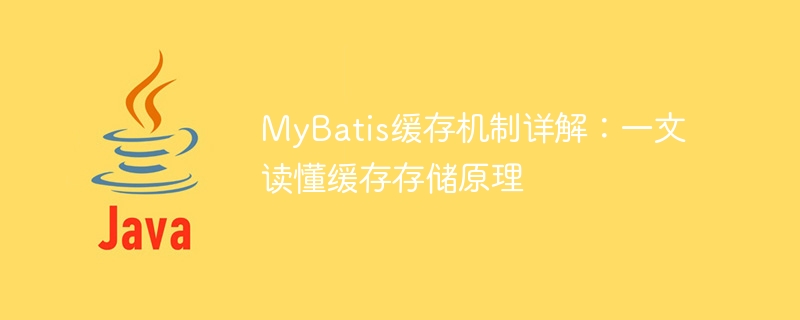

Detailed explanation of MyBatis caching mechanism: understand the cache storage principle in one article
Introduction
When using MyBatis for database access, caching is a very important mechanism that can Effectively reduce access to the database and improve system performance. This article will introduce the caching mechanism of MyBatis in detail, including cache classification, storage principles and specific code examples.
1. Cache classification
MyBatis’ cache is mainly divided into two types: first-level cache and second-level cache.
2. Cache storage principle
The cache storage principle of MyBatis mainly includes cache key generation and cache update strategy.
3. Specific code examples
The following is a simple example to demonstrate the caching mechanism of MyBatis:
public class User { private Long id; private String name; private Integer age; // 省略getter和setter方法 }
public interface UserMapper { User getUserById(Long id); }
In the above example, query is performed through the getUserById method of the UserMapper interface. The query results will be cached. Under the same query conditions, the second query will be directly from the cache. Get data from the database without accessing the database.
Conclusion
Through the introduction of this article, I believe that readers will have a deeper understanding of the caching mechanism of MyBatis. Reasonable use of the caching mechanism can improve system performance and reduce access to the database, thereby improving system stability and response speed. It is recommended that developers use MyBatis' caching mechanism flexibly based on specific business scenarios to achieve more efficient data access.
The above is the detailed content of Detailed explanation of MyBatis cache mechanism: understand the cache storage principle in one article. For more information, please follow other related articles on the PHP Chinese website!
 mybatis first level cache and second level cache
mybatis first level cache and second level cache SQL statement to backup database
SQL statement to backup database What is the difference between ibatis and mybatis
What is the difference between ibatis and mybatis What caching mechanisms does php have?
What caching mechanisms does php have? How to configure database connection in mybatis
How to configure database connection in mybatis What is the working principle and process of mybatis
What is the working principle and process of mybatis What are the differences between hibernate and mybatis
What are the differences between hibernate and mybatis How to trigger keypress event
How to trigger keypress event



